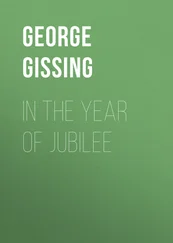George Gissing - The Whirlpool
Здесь есть возможность читать онлайн «George Gissing - The Whirlpool» — ознакомительный отрывок электронной книги совершенно бесплатно, а после прочтения отрывка купить полную версию. В некоторых случаях можно слушать аудио, скачать через торрент в формате fb2 и присутствует краткое содержание. Жанр: foreign_prose, literature_19, foreign_antique, на английском языке. Описание произведения, (предисловие) а так же отзывы посетителей доступны на портале библиотеки ЛибКат.
- Название:The Whirlpool
- Автор:
- Жанр:
- Год:неизвестен
- ISBN:нет данных
- Рейтинг книги:4 / 5. Голосов: 1
-
Избранное:Добавить в избранное
- Отзывы:
-
Ваша оценка:
- 80
- 1
- 2
- 3
- 4
- 5
The Whirlpool: краткое содержание, описание и аннотация
Предлагаем к чтению аннотацию, описание, краткое содержание или предисловие (зависит от того, что написал сам автор книги «The Whirlpool»). Если вы не нашли необходимую информацию о книге — напишите в комментариях, мы постараемся отыскать её.
The Whirlpool — читать онлайн ознакомительный отрывок
Ниже представлен текст книги, разбитый по страницам. Система сохранения места последней прочитанной страницы, позволяет с удобством читать онлайн бесплатно книгу «The Whirlpool», без необходимости каждый раз заново искать на чём Вы остановились. Поставьте закладку, и сможете в любой момент перейти на страницу, на которой закончили чтение.
Интервал:
Закладка:
'Oh, you have a choice, believe me,' came his airy answer. 'There's no harm in poverty that doesn't last too long. You may have profited by it; it is an experience. But now—Don't let us walk so far as to tire you. Yes, we will turn. Variety of life, travel, all sorts of joys and satisfactions—these are the things you need.'
'And if they are not within my reach?' she asked, without looking at him.
'By-the-bye'—he disregarded her question—'your friend, Mrs. Carnaby, has taken a long flight.'
'Yes.'
The monosyllable was dropped. Alma walked with her eyes on the ground, trailing her sunshade.
'I didn't think she had much taste for travel. But you know her so much better than I do.'
'She is enjoying herself,' said Alma.
'No need for you to go so far. Down yonder'—he nodded southward—'I was thinking, the other day, of the different kinds of pleasure one gets from scenery in different parts of the world. I have seen the tropics; they left me very much where I was, intellectually. It's the human associations of natural beauty that count. You have no desire to go to the islands of the Pacific?'
'I can't say that I have.'
'Of course not. The springs of art are in the old world. Among the vines and the olives one hears a voice. I must really try to give you some idea of my little place at Riva.'
He began a playful description—long, but never tedious; alluring, yet without enthusiasm—a dreamy suggestion of refined delights and luxuries.
'I have another place in the Pyrenees, to suit another mood; and not long ago I was sorely tempted by the offer of a house not far from Antioch, in the valley of the Orontes—a house built by an Englishman. Charming place, and so entirely off the beaten track. Isn't there a fascination in the thought of living near Antioch? Well away from bores and philistines. No Mrs. Grundy with her clinking tea-cups. I dare say the house is still to be had.—Oh, do tell me something about your friend, Fraulein Steinfeld. Is she in earnest? Will she do anything?'
His eloquence was at an end. Thenceforward he talked of common things in unemotional language; and when Alma parted from him, it was with a sense of being tired and disappointed.
On the following day she did not see him at all. He could not have left Bregenz, for, of course, he would have let her know. She thought of him incessantly, reviewing all his talk, turning over this and that ambiguous phrase, asking herself whether he meant much or little. It was natural that she should compare and contrast his behaviour with that of Felix Dymes. If his motive were not the same, why did he seek her society? And if it were? If at length he spoke out, summing his hints in the plain offer of all those opportunities she lacked?
A brilliant temptation. To leave the world as Alma Frothingham, and to return to it as Mrs. Cyrus Redgrave!
But, in that event, what of her musical ambitions? He spoke of her art as the supreme concern, to which all else must be subordinate. And surely that was his meaning when he threw scorn upon 'bores and philistines'. Why should the fact of his wealth interfere with her progress as an artist? Possibly, on the other hand, he did not intend that she should follow a professional career. Cannot one be a great artist without standing on public platforms? Was it his lordly thought to foster her talents for his own delectation and that of the few privileged?
Her brain grew confused with interpreting and picturing. But once more she had made an advance in self-esteem. She could await the next meeting with a confidence and pride very unlike her sensations in the Stiglmeyerplatz at Munich.
It took place on the second day. This time Redgrave did not wait upon accident; he sent a note, begging that he might have the pleasure of another talk with her. He would call at a certain hour, and take his chance of finding her at home. When he presented himself, Alma was sitting in the common room of the pension with two German ladies; they in a few minutes withdrew, and familiar conversation became possible. As the windows stood open, and there were chairs upon the balcony, Redgrave shortly proposed a move in that direction. They sat together for half an hour.
When Redgrave took his leave, it was without shaking of hands—with no Auf Wiedersehen . He smiled, he murmured civilities; Alma neither smiled nor spoke. She was pale, and profoundly agitated.
So this was his meaning?—made plain enough at last, though with the most graceful phrasing. Childish vanity and ignorance had forbidden her to dream of such an issue. She had not for a moment grasped the significance to a man of the world of the ruin and disgrace fallen upon her family. In theory she might call herself an exile from the polite world; none the less did she imagine herself still illumined by the social halo, guarded by the divinity which doth hedge a member of the upper-middle class. Was she not a lady? And who had ever dared to offer a lady an insult such as this? Shop-girls, minor actresses, the inferior sort of governess, must naturally be on their guard; their insecurity was traditional; novel and drama represented their moral vicissitudes. But a lady, who had lived in a great house with many servants, who had founded an Amateur Quartet Society, the hem of whose garment had never been touched with irreverent finger—could she stand in peril of such indignity?
Not till now had she called to mind the forewarnings of Sibyl Carnaby, which, at the time of hearing them, she did not at all understand. 'People,' said Sibyl, 'would approach her with strange ideas.' This she might have applied to the grotesque proposal (as it seemed to her) of Felix Dymes, or to the risk of being tempted into premature publicity by a business offer from some not very respectable impresario. What Sibyl meant was now only too clear; but how little could Mrs. Carnaby have imagined that her warning would be justified by one of her own friends—by a man of wealth and consideration.
She durst not leave the house for fear of encountering Redgrave, who, if they crossed by chance, might fancy she invited another meeting. She dreaded the observation of women, especially of Miss Steinfeld. The only retreat was her bedroom, and here she secluded herself till dinner-time. At this meal she must needs face the company or incur remark. She tried to return her friend's smile with the ordinary unconcern. After dinner there was no avoiding Miss Steinfeld, whose air of extreme discretion showed that she had an inkling of events, and awaited confidences.
'Mr. Redgrave has gone—he called to say goodbye.'
' So ?'
Irritated by self-consciousness, revolting against a misinterpretation which would injure her vanity, though it was not likely to aim at her honour, Alma had recourse to fiction.
'I daresay you guess?—Yes, and I refused.'
Miss Steinfeld was puzzled. It did not astonish her that a girl should reject ten thousand pounds per annum, for that she was too high-minded; but she had thought it beyond doubt that Alma's heart was engaged. Here, it had seemed to her, was the explanation of a mystery attaching to this original young Englishwoman; unhoped, the brilliant lover, the secretly beloved, had sought her in her retirement. And after all, it was a mistake.
'I don't care for him a bit,' Alma went on. 'It had to be got over and done with, that was all.'
She felt ashamed of herself. In childhood she had told falsehoods freely, but with the necessity for that kind of thing the habit had fallen away. Solace, however, was at hand, for the German girl looked at her with a new interest, a new sympathy, which Alma readily construed as wonder and admiration, if not gentle envy. To have refused an offer of marriage from a handsome man of great wealth might be counted for glory. And Alma's momentary shame yielded to a gratification which put her outwardly at ease.
Читать дальшеИнтервал:
Закладка:
Похожие книги на «The Whirlpool»
Представляем Вашему вниманию похожие книги на «The Whirlpool» списком для выбора. Мы отобрали схожую по названию и смыслу литературу в надежде предоставить читателям больше вариантов отыскать новые, интересные, ещё непрочитанные произведения.
Обсуждение, отзывы о книге «The Whirlpool» и просто собственные мнения читателей. Оставьте ваши комментарии, напишите, что Вы думаете о произведении, его смысле или главных героях. Укажите что конкретно понравилось, а что нет, и почему Вы так считаете.












